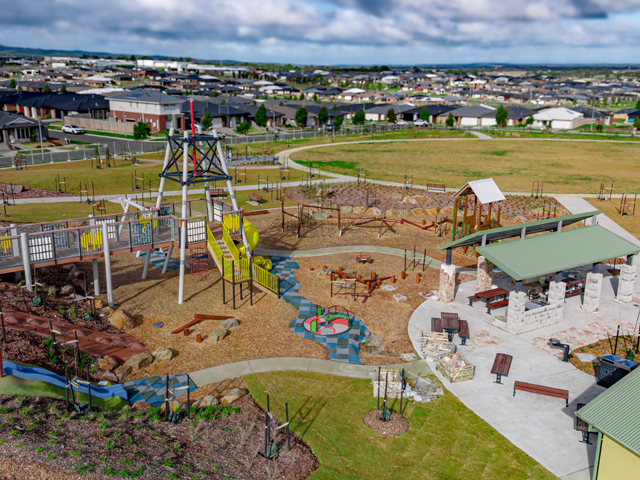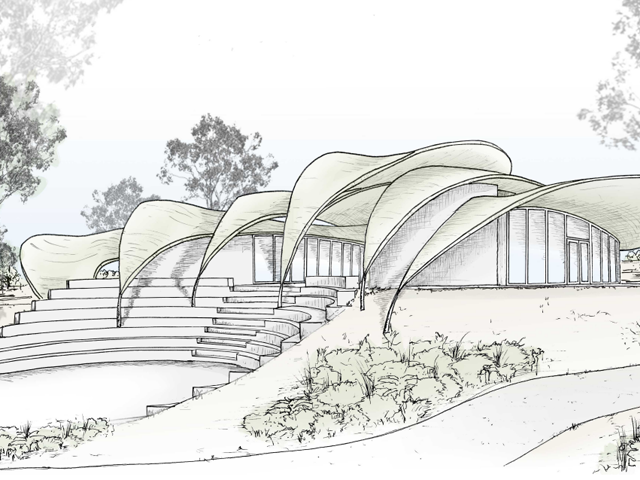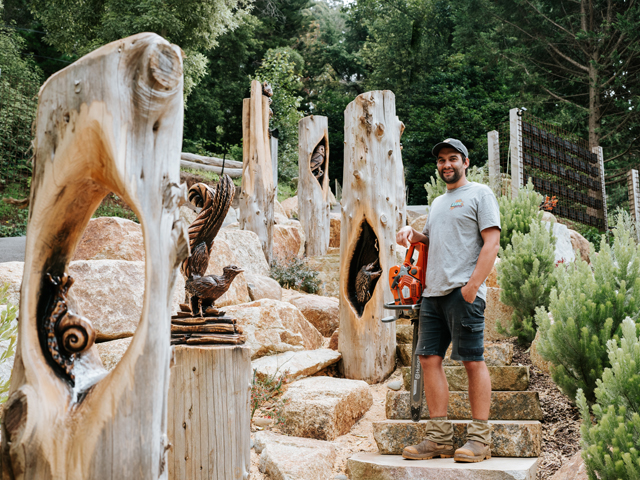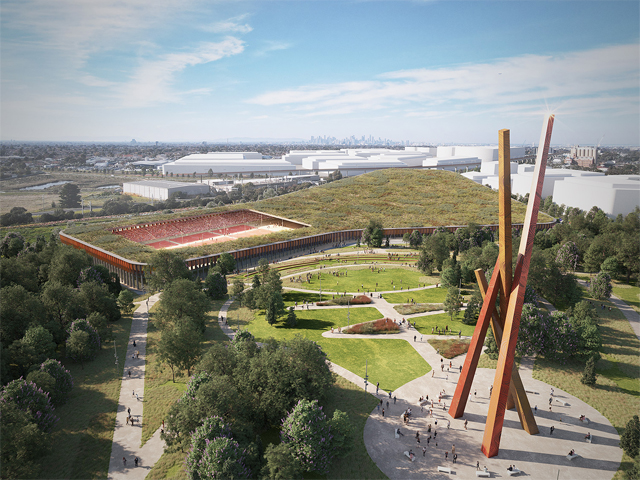CHINA'S GARDEN OF EDEN
08 Feb 2018
The Cornish Eden Project has been slated to begin its international expansion through an ecological attraction in China, which will feature the world’s tallest indoor waterfall as its centrepiece.

The Cornish Eden Project is a popular ecopark, situated in Cornwall, UK, built on a colossal disused clay pit which features two biomes that are home to more than 3000 species of plants. The ecopark was opened in 2001 in order to create awareness and educate visitors about environmental sustainability.
Grimshaw Architects has released the visuals of one of the six planned international outposts, scheduled to begin construction in Qingdao, China, a coastal city of nearly 9 million in the Shandong Province between Shanghai and Beijing. The development agreement between Eden Project International Ltd (EPIL), Eden Project’s spinoff company, and China Jinmao Holdings was signed at the British Ambassador’s Residence in Beijing and includes details of the design, construction and operation terms for the development.
EPIL was established as part of the Eden Project with the goal to “Partner with like-minded organisations to deliver the Eden mission of providing social and ecological benefits during a time of global environmental decline and social disruption”. 
David Harland, CEO of EPIL, announced the deal at the end of a three-day trade delegation to China with UK Prime Minister Theresa May that was part of her vision to create a “global Britain”.
The prime minister stated that, “Both the UK and China have rich and distinctive cultures of which we are rightly proud. Today’s agreements mean we will work even more closely together, collaborating on film festivals, theme parks, architecture, history and much more. These deals underline the strength of the UK’s creative industries and will generate hundreds of millions of pounds of investment, creating opportunities across the UK. By sharing our history and culture we will also deepen the strong ties between our two peoples.”
“This is a huge development in the history of the Eden Project and the biggest step we have yet taken towards opening an Eden Project in China,” Harland commented. 
The $266 million project was announced in 2015 and is finally set to start construction in 2018 with the goal to open up for public engagement in 2020. The selected site is a colossal space of reclaimed and damaged land set at the conjunction of two rivers that was previously used for salt production and pawn breeding. The site has a spectacular view of the city of Qingdao, surrounded by the Yellow Sea, and will blend perfectly with the Eden Project’s company ethos of regeneration and bringing life back into a world that has become environmentally derelict. The city is famous for hosting the 2008 Olympic sailing races, boasting the largest bathing beach in Asia, and exporting Tsingtao Beer. With an annual tourism value of 63 million visitors, it is the perfect location for Eden Project’s ambitions.
The Cornish Eden Project is themed around earth, while its Chinese counterpart will have water as its key feature. Grimshaw Architects is set to continue their incredible work from the first attraction with Qingdao Eden. The waterfall will be the magnum opus of the project, tumbling from a grand height of 50m, the same as Niagara Falls, and will be surrounded by glittering streams and lakes with one feature biome.
“In Qingdao we are going to focus on water and people. The story of water is clearly one of the global issues for the 21st and probably 22nd century,” explained Harland. “It's only by telling those stories that focus on water abundance, water scarcity and water quality, that we can actually get people to think about these global issues.” 
Inside a Biome at the Cornish Eden Project ecopark
EPIL is currently working on attractions in China, Australia and New Zealand, with plans to begin constructions in the Middle East, North America, Ireland and the UK, and intend to open attractions across the globe.
Three more Chinese Eden Projects are planned and will include construction at a former limestone mine near Tianjin, an outpost in Yan’an, and the transformation of the Sheng Lu Vineyard in Beijing into an oasis.
Like their counterparts, the projects will present a focus on large global issues today, specified by their locations, such as earth, water, food and biodiversity. Each project aims to collaborate with a range of originations and conservation groups to create a positive impact on the environment. 
The Eden Project in Cornwall has shown enormous success, with 19 million visits over its 16 year run. The company is excited to take this success to an international level and announce its ethos to the world: building attractions, not for the sake of public interest, but in order to encourage awareness about the environment and effects of climate change.
The company’s goal with Qingdao Eden is to create an iconic tourist location with global renown that features the “highest-quality sustainable construction practices”. Harland stated that, “It has the potential to become instantly recognisable worldwide and will build on 4000 years of Chinese relations with the environment and Eden's fresh approach to education.”
The Eden Project are partering with a number of like-minded organisations to establish collaborative Eden projects across the globe and to deliver social and ecological benefits to the respective locations. Qingdao Eden is no exception with a number of high-profile partnerships paving the way for the success of the project. The key collaboration is with China Jinmao Holdings Limited, the real estate developers of one of the world’s top 500 Enterprises, the Sinochem group. They focus on a wide range of real estate including hotels, iconic buildings and developments such as the Jinmao Tower in Shanghai (once China’s tallest building). These two companies are also collaborating with Zhang Xinqi, the mayor of Qingdao, BRE (the Buildings and Research Establishment), and Grimshaw Architects.
“The Qingdao Eden Project continues our approach of creating beautiful structures inspired by the efficiency of nature, made unique by the specific requirements of the location and theme,” explained Jolyon Brewis, partner at Grimshaw Architects. 
Co-founder of the Eden Project, Sir Timothy Smit, explained Eden Project’s mission and goals with its extensive international expansions, “To explore our dependence on the natural world, to use that understanding to excite people into delivering transformation where they live and to ask really serious questions about what a great future might look like for all of us.
"We want the new Edens to act as a heartbeat for those who feel the same way as we do and to develop in all of them the ability to tell the stories that inspire the people who are their constituency. We need to green the desert of our mind, we need to fertilise our imagination and we need to believe that the future remains ours to make.”

MORE NEWS

MASTERPLAN FOR INCLUSIVE, CLIMATE-RESILIENT COMMUNITY PARK IN LISMORE

STRIKING GOLD IN BALLARAT

JARRAHDALE TRAIL CENTRE TAKES DESIGN CUES FROM NATIVE FLORA

HARNESSING THE POWER OF DESIGN TO TRANSFORM CITIES

WOOD CARVING WITH BRANDON KROON

